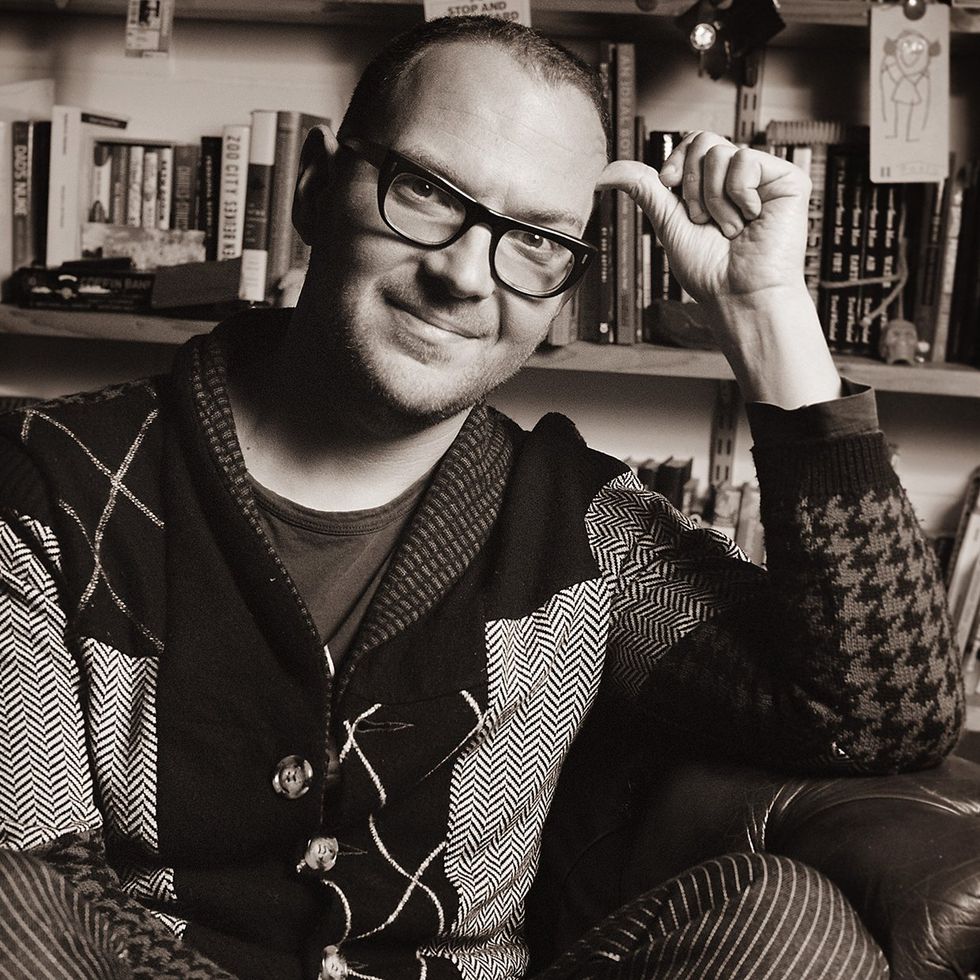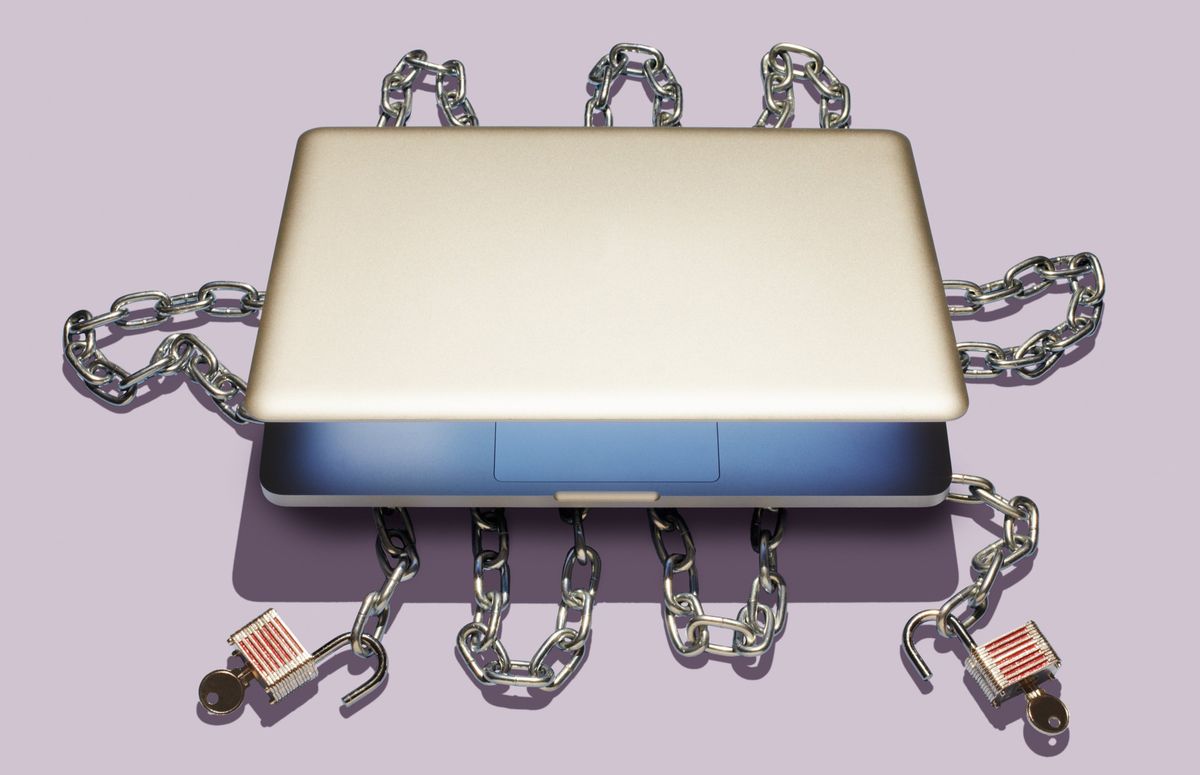In his new book The Internet Con: How to Seize the Means of Computation, author Cory Doctorow presents a strong case for disrupting Big Tech. While the dominance of Internet platforms like Twitter, Facebook, Instagram, or Amazon is often taken for granted, Doctorow argues that these walled gardens are fenced in by legal structures, not feats of engineering. Doctorow proposes forcing interoperability—any given platform’s ability to interact with another—as a way to break down those walls and to make the Internet freer and more democratic.
IEEE Spectrum contributor Michael Nolan spoke with Doctorow about his new book and how interoperability could break up monopolies both in tech and beyond.
Your new book, The Internet Con, as you write in its acknowledgements, “crystallizes two decades’ worth of advocacy writing about and working on issues in digital human rights.” How did that come to take the form of an argument for interoperability as a way to break up Big Tech monopolies?

Cory Doctorow: Over the decades that I’ve been involved in technology, the entities that are on the user’s side have really changed. Sometimes it was tech platforms or companies and sometimes it wasn’t. Sometimes it was governments and sometimes it wasn’t. Having started off defending tech companies that really did have their users’ backs from entertainment companies, I realized that the distinction between them was not that one industry was made up of entertainment executives whose commitment to human rights was very thin and the other was made up of tech executives who had a more good-faith commitment. When a sector is extremely concentrated, the people who are willing to trade the public good and foundational democratic values for incremental increases in their employer’s profitability get a hearing within the company and take over the company’s decision making. When a business doesn’t have to worry about losing its customers due to abusing them, then the people arguing, “We shouldn’t do this because it’s wrong and also it’s bad for business” can only argue, “We shouldn’t do this because it’s wrong.” They have to grudgingly admit that it might be good for business. Any firm in that state eventually becomes a serious hazard to human rights. It’s this “curse of bigness,” as Brandeis called it, that we should really be attuned to and is really pernicious.
That leads to the main proposal of the book, which is that reaffirming interoperability between systems and platforms can break apart these very large companies. Can you define interoperability?
Doctorow: At its root, it’s just the ability to use one thing with something else. Use any ink in your printer with any paper, use any socks with your shoes, anyone’s gasoline in your car, put any lightbulb in your light socket. There’s voluntary, mandatory interoperability, where a group of stakeholders get together and they say, “This is the goal we want all of our products to achieve, and we are going to design a framework so that we can make sure that every lightbulb lights up when you stick it in a light socket.” Then there’s the stuff where they’re indifferent: Car companies don’t stop you from putting a little cigarette-lighter-to-USB adapter into your car.
Companies can grow very quickly because tech has got these great network effects, but they also have, because of interoperability, really low switching costs.—Cory Doctorow
Then there’s the third kind of interop, the kind of chewy, interesting, lots-of-rich-Internet-history interop, which is adversarial interoperability, which in the book we call “comcom,” short for competitive compatibility. It’s the interop that’s done against the wishes of the original equipment manufacturer: scraping, reverse engineering, bots, all of that gnarly stuff done in the face of active hostility. This would be like Apple reverse-engineering Microsoft Office and making the iWork suite—Pages, Numbers, and Keynote—so that anyone with a Mac could read any Windows-based office file without having to buy any software from Microsoft.
There are so many examples of this from technology’s history. It’s really the engine of technology. It’s the reason we’ve had this incredible boom-and-bust cycle within tech companies. Companies can grow very quickly because tech has got these great network effects, but they also have, because of interoperability, really low switching costs. Anytime a platform isn’t suited to you or someone has a better idea for it, they can just make a tool [that] kind of greases the skids for you to leave the last one and to jump to the new one. Because of that interoperability, the companies that grow really big become irresistible targets for other companies that want to come in, tempt their users away, and offer them a very easy path to get from the old place to the new one. I think interoperability being interrupted explains “Why are tech companies bad when they used to be good?” It’s because the users can’t leave. If you can’t leave, they don’t have to treat you well.
So how has tech interoperability become interrupted?
Doctorow: There are lots of platforms that have become, effectively, walled gardens. The argument is that the reason that these businesses are so sturdy, that no one has disrupted them or displaced them is that they have such good engineers. I get this from people about iOS all the time, saying “iOS is an impregnable vault, they’ve figured out how to stop people from doing it.” and I say, “wait a second—it’s a felony to try.” If I say I’m the world champion boxer, and no one has ever defeated me, but I can also send you to prison for five years for trying to take my title, how do we know how good a boxer I am? The question of why they use the lawyers and not the engineers, why their go-to is the lawyers and not the engineers, to me the answer is because the lawyers are much more effective at preventing a capitalized, motivated rival from figuring out how to bypass their technical countermeasures.
So you’re saying it’s not technical dominance or business superiority or network effects that keep these platforms dominant; it’s instead the switching costs imposed by law. How could those laws be changed to make existing platforms more interoperable?
Doctorow: One of the things I’m interested in is how to make a law you can’t cheat on. Facebook often proposes rules only they can follow. Rules for interoperability have two constraints: they have to be administrable and cannot constitute a capital barrier. For example, we can propose two different rules for Twitter [now X]. One would be an end-to-end principle, which is a rule that says: If I follow someone, and they post something, I can see it. That rule makes it really hard for Twitter to overweight content from its preferred suppliers. On top of that we add the Right to Exit. This is the right to leave Twitter without losing your followers and followees. This would be a mandate to stand up an API, and it would be, probably, an ActivityPub API. It’s a pretty good standard and its deficiencies can be remedied more easily than we can design a new standard. You put those two together, Twitter can’t keep anyone prisoner, and Twitter will have to treat the people who choose to stay well.
You also argue that requiring interoperability will lead to something of a virtuous antitrust cycle. Is it that breaking down tech monopolies lessens their ability to reinforce the policies that have prevented interoperability in the first place?
Doctorow: That’s half of it. To understand the success of an industry in achieving its regulatory goals, you have to understand it needs two things. The first thing is power in the form of excess profits it can maneuver to lobbying. The second is unity.
Think back to the Napster wars. That was a sector of hundreds of small and medium-sized tech companies that in aggregate had more profit than the whole music industry and the whole movie industry. But the movie industry and the music industry had a smaller number of participants: music was five, movies were seven back then, now it’s three and four. As a result, they were able to agree on what to spend the money on. The tech industry was all over the place. They were knifing each other in the back. The reason the tech industry treats people like the music industry treated them 20 years ago is that unity.
The two benefits of competition are that it breaks the cash reserves that are used to enact public policy and it introduces the collective action problem that makes the remaining reserves harder to spend.
How does that virtuous cycle then extend from tech into other sectors?
Doctorow: Think about what happened with the breakup of Standard Oil in the first part of the 20th century. Standard Oil was not the only trust. There were trusts for everything: whiskey, railroads, iron, aluminum, cars. Standard Oil’s dominance made people so hopeless about whether or not they could have an accountable government that the toppling of Standard Oil opened up a floodgate of political will that saw all of those other trusts shattered.
I want to go after tech because it has this characteristic interoperability that makes it a soft target. We start with tech, and that gives us the momentum, the credibility, and the political will to go after everybody else.
Cory Doctorow is an author, activist, journalist, and blogger. His new book, The Internet Con: How to Seize the Means of Computation, from Verso Books, is available 5 September 2023. He is special advisor to the Electronic Frontier Foundation.
- The Fathers of the Internet Revolution Urge Today’s Software Engineers to Reinvent the Web ›
- Spectrum's Summer Science-Fiction Reading List - IEEE Spectrum ›
Michael Nolan is a writer and reporter covering developments in neuroscience, neurotechnology, biometric systems and data privacy. Before that, he spent nearly a decade wrangling biomedical data for a number of labs in academia and industry. Before that he received a masters degree in electrical engineering from the University of Rochester.



